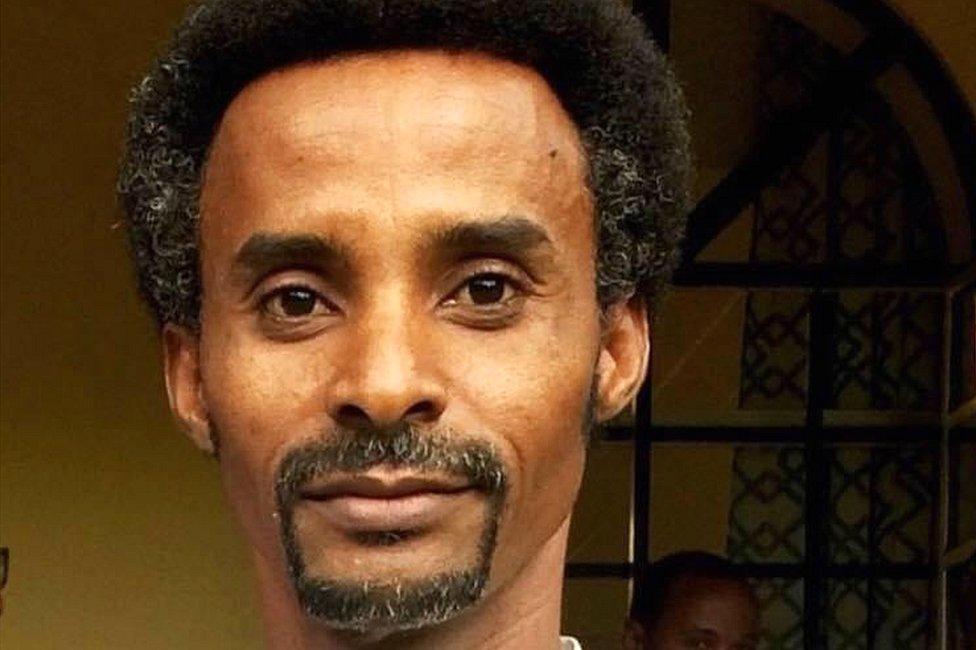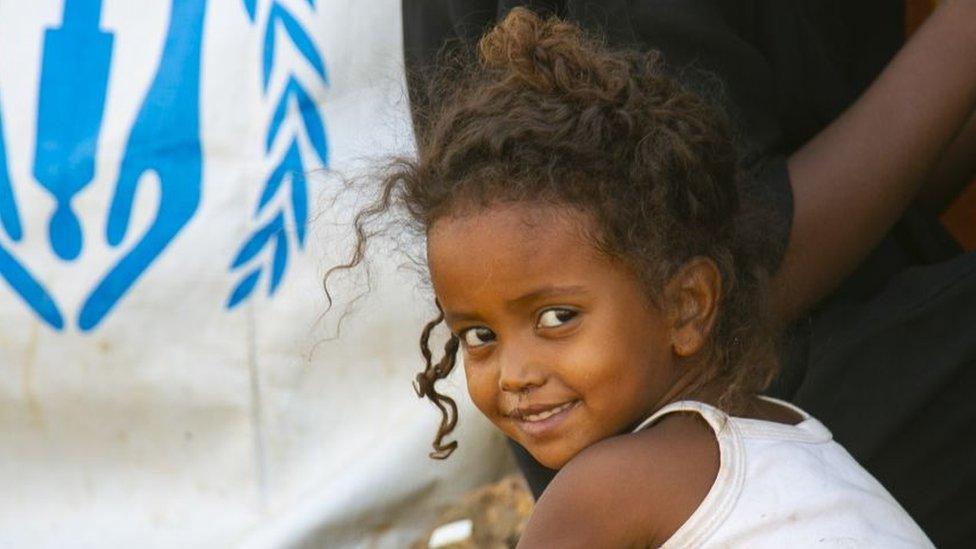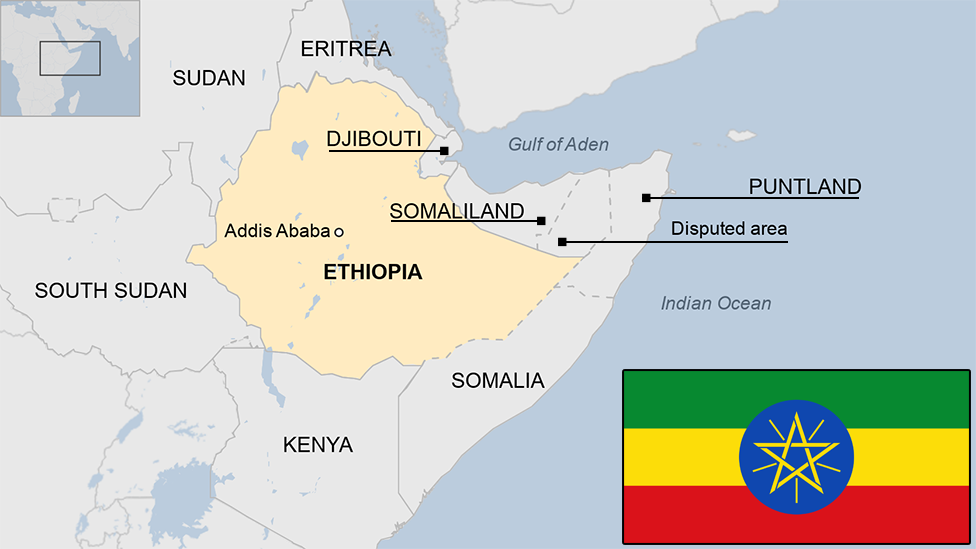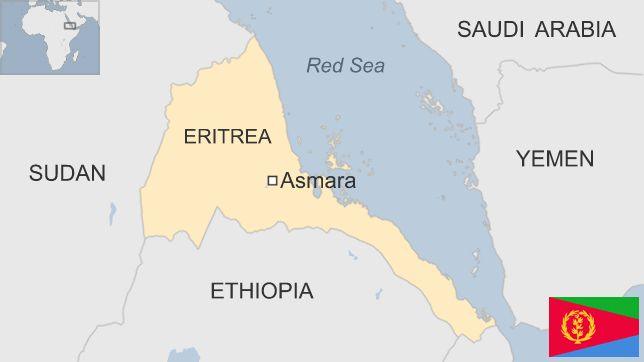Ethiopia's Tigray crisis: BBC reporter Girmay Gebru freed by military
- Published

It is not clear why the BBC's Girmay Gebru was detained
The BBC reporter in Ethiopia's conflict-hit region of Tigray has been released without charge.
Girmay Gebru was taken from a café in the regional capital, Mekelle, on Monday, and detained by the military.
A local journalist, Tamirat Yemane, and two translators - Alula Akalu and Fitsum Berhane, who were working for the Financial Times and the AFP news agency - have also been freed.
No official reason has been given for their detention.
Girmay, who works for BBC Tigrinya, says he is happy to be home after two days in detention.
It is not clear whether four of Girmay's neighbours detained alongside him on Monday have also been released.
The BBC says it is "pleased and relieved" Girmay has been released.
"We are seeking a full explanation from the authorities as to why he and others were arrested when they had clearly committed no offence," the BBC said.
Death threat to reporter
Ethiopia's government has been fighting regional forces in Tigray since November.
After months of an effective media blackout since the start of the conflict in Tigray, the government granted access to some international media organisations last week.

More on the Tigray conflict:

Both AFP and the Financial Times had received permission to visit the region.
Despite this, their workers were detained, which led to condemnation from the international community.
The US government joined media rights organisations in calling for the media workers' release.
US State Department spokesperson Ned Price said their detention was inconsistent with the Ethiopian government's commitment to allow international media access to Tigray.
This is not the first time media workers have been arrested in Ethiopia since the conflict began.
In January police detained a cameraman working for Reuters news agency who was covering the Tigray conflict. Kumerra Gemechu was held for 12 days before being released without charge.
Just over two weeks later, Dawit Kebede Araya, a reporter with the state-owned broadcaster Tigray TV was shot dead in Mekelle.
Then in February, the Committee to Protect journalists said, external that freelance reporter Lucy Kassa's home in Ethiopia's capital Addis Ababa was raided by armed men who threatened to kill her if she kept on investigating stories about the conflict in Tigray.
What does the future hold for Ethiopia, and what challenges remain in the Tigray region?
Fighting continues in Tigray despite the government declaring victory over the Tigray People's Liberation Front, which used to be the region's ruling party.
Hundreds have been killed and tens of thousands displaced.
There is international concern over growing reports of atrocities committed by all sides and the worsening humanitarian crisis.
An official of Ethiopia's ruling party recently warned that measures would be taken against people they said were "misleading international media".
Related topics
- Published28 February 2021

- Published2 January 2024

- Published18 April 2023
